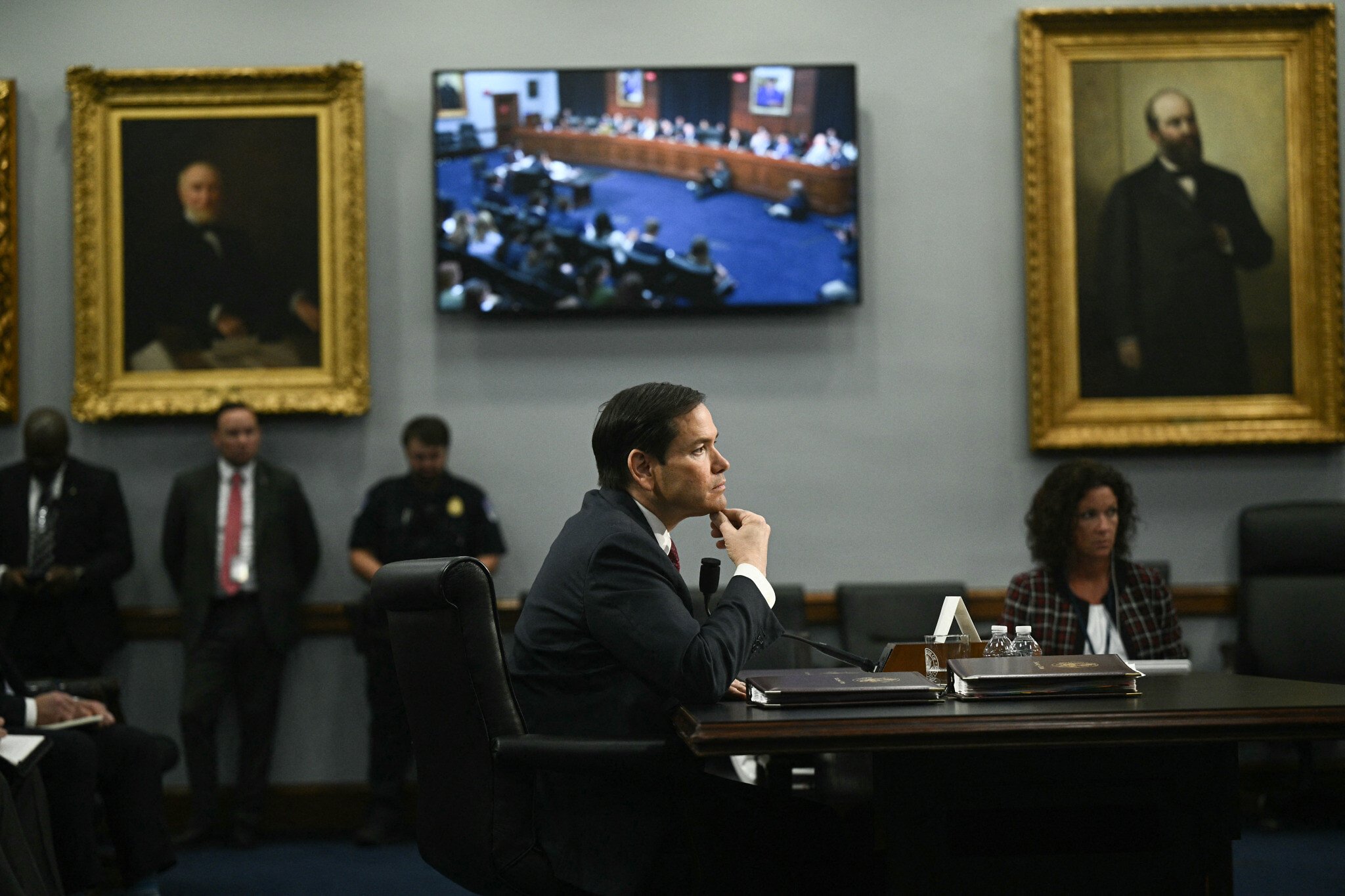



US Secretary of State Marco Rubio said Wednesday that he is somewhat optimistic that a deal between Israel and Hamas will soon be reached that would see the release of all the hostages and end the war in Gaza, but he subsequently acknowledged that he has felt this way before.
“I have some level of optimism that we may have breakthrough achievements here pretty quickly, hopefully on an end to this and the release of all the hostages,” Rubio told a congressional hearing.
“I have felt that way now at least four separate times in the last couple of months, and for one reason or another at the last minute, it didn’t happen,” he added.
A source involved in the hostage negotiations was much less optimistic, telling The Times of Israel that talks remain at an impasse over Israel’s insistence on only agreeing to a temporary ceasefire, while Hamas is demanding a permanent end to the war.
US special envoy to the Mideast Steve Witkoff is pushing a temporary ceasefire framework that would see the release of as many as half of the remaining living hostages during a ceasefire of up to two months. During that time, the sides would hold negotiations on the terms of a permanent ceasefire and the release of the remaining hostages, the source said, adding that the Trump administration would provide assurances that it will keep Israel at the negotiation table.
Hamas is seeking more ironclad guarantees, given that negotiations on a permanent ceasefire were supposed to have been held during the previous hostage deal reached in January. But Netanyahu largely refused to engage in those talks, and Israel resumed its military campaign in the Gaza Strip in March. Israel is now demanding more vague language that allows it to resume fighting in Gaza if the negotiations on a permanent ceasefire do not materialize, the source said.
Prime Minister Benjamin Netanyahu reiterated his backing for a temporary agreement during a Wednesday press conference, while adding that he was also prepared to end the war permanently if a growing set of conditions is met. Those included Hamas releasing all of the hostages, its members putting down their weapons and leaving Gaza, demilitarizing the entire Strip, Israel maintaining security control over the entire Strip and the implementation of US President Donald Trump’s plan to relocate interested Palestinians out of the enclave.
Wednesday was Rubio’s second day of appearances before a series of Congressional committees. During each of them, lawmakers pressed him on what the US is doing to address the humanitarian crisis in Gaza. Israel blocked aid from entering the Strip for 78 days, arguing that enough assistance had gone in during a six-week ceasefire earlier this year and that Hamas has been diverting much of that aid.
Earlier this week, though, Netanyahu ordered the resumption of humanitarian aid entries, acknowledging international pressure over looming starvation of civilians in Gaza. Around 200 aid trucks have entered since Monday, according to Israeli authorities, who have yet to respond to claims from the UN that the assistance has not actually been delivered to civilians due to lack of coordination from the IDF.
While being careful not to overtly criticize Israel, Rubio told lawmakers that Netanyahu’s decision to lift its blockade was the result of quiet US diplomacy.
He said the US was backing the new Gaza Humanitarian Foundation, which was established in close coordination with Israel in order to deliver aid through a new mechanism that prevents its diversion by Hamas.
GHF says it plans to begin operations in the coming days and that Israel agreed to allow aid in through existing mechanisms in the interim. The foundation has faced significant criticism from international humanitarian groups, who have pointed to GHF’s acknowledgement that it will only be initially able to feed about 60 percent of Gazans.
“I don’t want to be disappointed on it again, but I want you to know there are efforts ongoing to both provide more humanitarian assistance and bring about the end of this conflict,” Rubio said Wednesday.
Later on in his testimony, Rubio predicted that additional countries will join the Abraham Accords normalization agreements between Israel and its Arab neighbors.
“We have an Abraham Accords office that is actively working to identify a number of countries who have lined up and already I think we may have good news, certainly before the end of this year, of a number of more countries that are willing to join that alliance,” Rubio told the House Foreign Affairs Committee, adding that the administration was working to select an ambassador to head the office.
He said there was “still a willingness” in Saudi Arabia to normalize ties with Israel, but “certain conditions are impediments,” including the ongoing war in Gaza. Riyadh has also made clear that it will not normalize relations with Israel absent Jerusalem agreeing to allow for the establishment of an irreversible, time-bound pathway to a future Palestinian state, which Netanyahu has vowed to oppose.
Rubio added that Syria’s new leaders “have said that they have no interest in a war with Israel.”
“They have no interest in becoming a playground to export revolution. What they want is to build a country… and that’s what we’re willing to help them do,” Rubio told the House Foreign Affairs Committee, explaining the US decision to remove sanctions on Syria.
A subsequent hearing included a heated exchange with Democratic Representative Pramila Jayapal of Washington, who blasted the Trump administration’s efforts to deport anti-Israel foreign student activists.
She raised the case of Tufts University students Rümeysa Öztürk, who according to her lawyers was detained over an op-ed she wrote for the school newspaper calling to divest from companies with ties to Israel and accusing it of “genocide.” Rubio defended the detention, but did not provide any legal justification for it.



